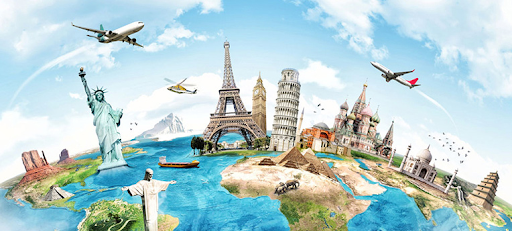Planning a trip can be exciting, but it requires careful preparation to ensure a smooth and enjoyable experience. Smart travel planning goes beyond booking flights and hotels; it involves thoughtful consideration of various factors to make your journey comfortable, safe, and memorable. Here’s a comprehensive guide on what to consider for your upcoming trip.
Tourism Company: A Reliable Travel Partner
Choosing the right Tourism Company can make a significant difference in your travel experience. A reputable tourism company provides expert guidance, assists with accommodations, transportation, and itinerary planning, and ensures you have access to local knowledge that can enhance your trip. Whether it’s arranging guided tours, offering customized packages, or providing on-ground support, partnering with a trusted tourism company reduces stress and allows you to focus on enjoying your travel.
Preplanned Travel Packages: Convenience and Efficiency
Opting for preplanned travel packages can simplify your trip significantly. These packages often include accommodations, transportation, meals, and scheduled activities, allowing you to experience your destination without worrying about the logistics. Preplanned travel packages are particularly beneficial for travelers with limited time or those visiting a place for the first time, as they provide a structured itinerary while still leaving room for personal exploration.
Budgeting: Planning for Every Expense
A well-thought-out budget is essential for smart travel planning. Consider all potential expenses, including airfare, accommodation, meals, local transportation, attractions, and incidental costs. Researching costs in advance and allocating funds accordingly helps avoid unexpected financial stress. Additionally, keeping a small emergency fund ensures you are prepared for unforeseen circumstances, such as sudden flight changes or medical emergencies.
Travel Insurance: Safety and Peace of Mind
Travel insurance is a critical consideration that often gets overlooked. Comprehensive travel insurance covers trip cancellations, medical emergencies, lost luggage, and travel delays. Investing in travel insurance provides peace of mind, knowing that you are protected against potential risks that could disrupt your plans. For international travel, it is especially important to ensure your insurance covers health care abroad.
Transportation: Selecting the Best Options
Choosing the right mode of transportation plays a vital role in the quality of your trip. Depending on your destination, you may need to consider flights, trains, buses, or car rentals. Researching schedules, fares, and convenience factors such as proximity to your accommodations helps you save time and money. Additionally, consider local transportation options at your destination to ensure smooth commuting between attractions.
Accommodation: Comfort and Accessibility
Selecting appropriate accommodations is another key factor in travel planning. Consider the location, amenities, and safety of your lodging. Staying near popular attractions or public transport can save travel time and enhance your experience. Reading reviews and comparing prices allows you to make an informed decision and choose accommodations that best suit your preferences and budget.
Cultural and Legal Awareness: Respect and Safety
Before traveling to a new destination, understanding the local culture, customs, and laws is essential. Familiarize yourself with local etiquette, dress codes, and basic phrases in the native language to communicate effectively. Being aware of laws and regulations, such as visa requirements or restricted areas, ensures you avoid legal issues and fosters respectful interactions with locals.
Health Considerations: Staying Fit on the Go
Prioritizing your health is crucial when planning a trip. Research any necessary vaccinations or preventive measures for your destination. Pack essential medications, maintain a balanced diet, and stay hydrated during your journey. Additionally, knowing the location of nearby medical facilities provides reassurance in case of emergencies.
Environmental and Ethical Awareness: Responsible Travel
Smart travelers also consider the environmental and social impact of their trips. Choose sustainable options, such as eco-friendly accommodations, public transport, and responsible tour operators. Respecting local communities and minimizing your ecological footprint ensures that your travel contributes positively to the places you visit.
Flexibility: Embracing the Unexpected
While planning is essential, flexibility is equally important. Travel plans may need adjustment due to weather, transportation delays, or unforeseen circumstances. Embracing flexibility allows you to adapt without stress, making your travel experience more enjoyable and less rigid. A balance between a structured itinerary and spontaneous exploration often results in the most memorable trips.
Conclusion
Smart travel planning involves a combination of preparation, research, and thoughtful decision-making. From choosing the right Tourism Company and considering preplanned travel packages to budgeting, health, and cultural awareness, every aspect of your trip contributes to a smooth and fulfilling journey. By taking the time to plan carefully, you can ensure that your upcoming trip is enjoyable, safe, and memorable, creating experiences that last a lifetime.



